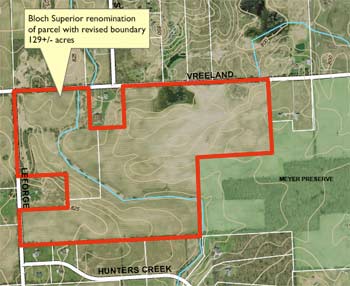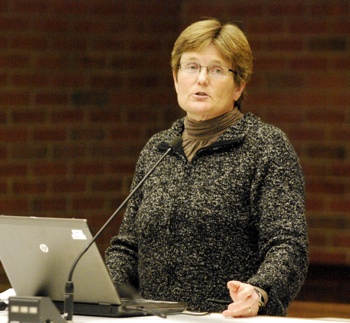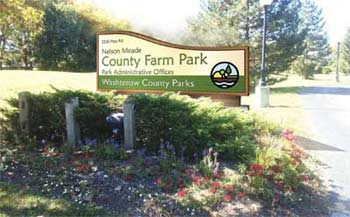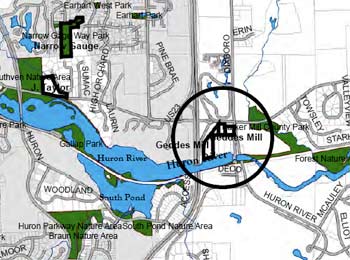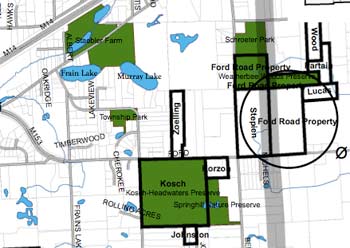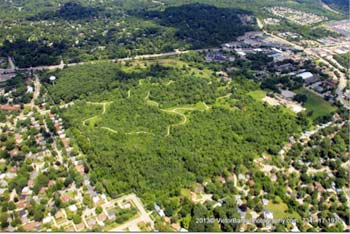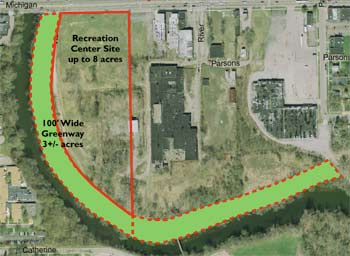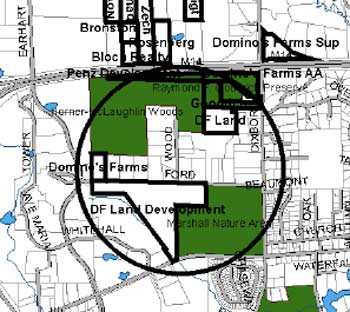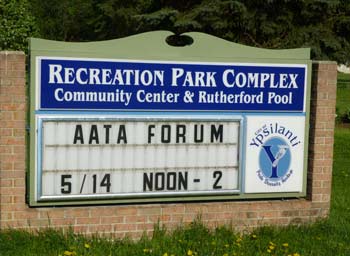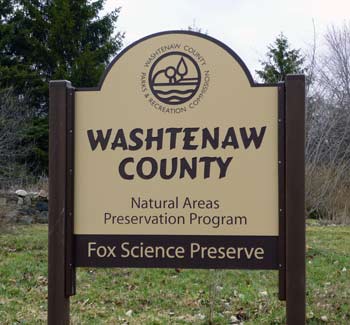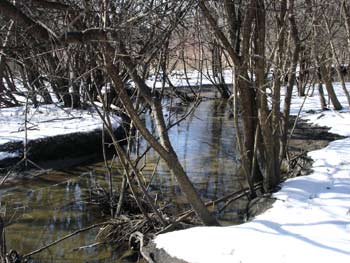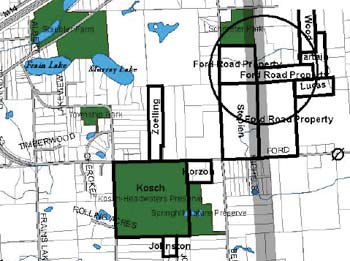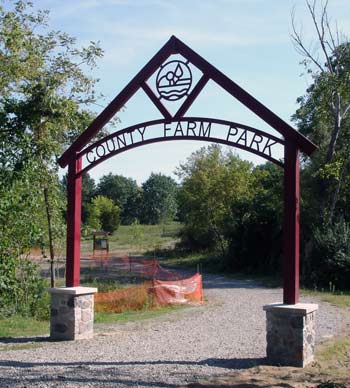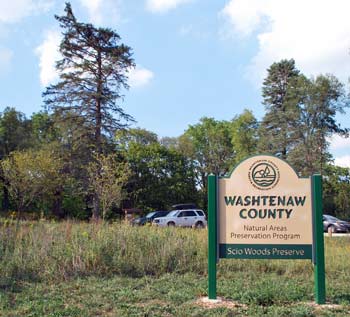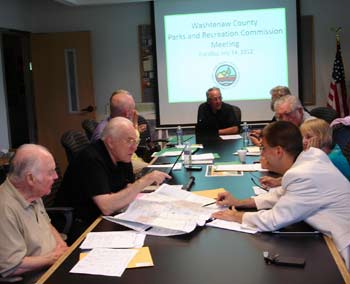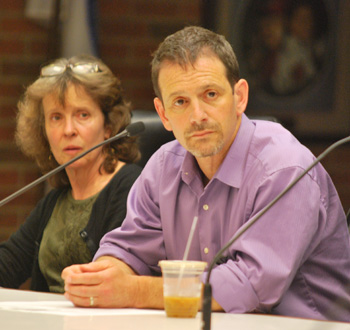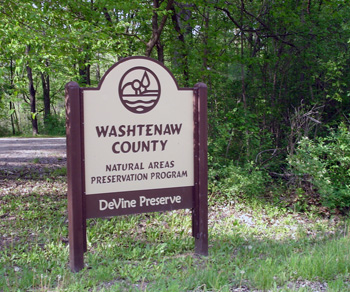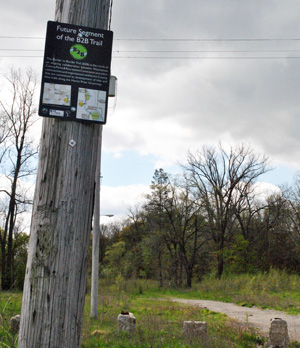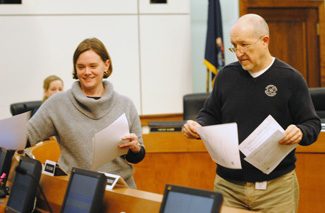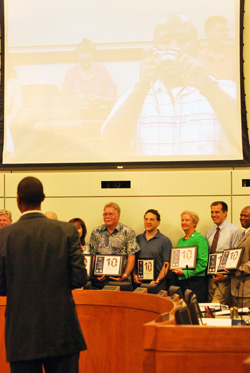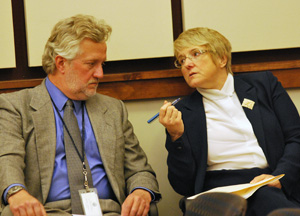Washtenaw County board of commissioners meeting (Sept. 5, 2012): Board chair Conan Smith has floated a proposal to raise taxes that support economic development and agricultural programs, and suggested revising the way those revenues are administered.
The proposal came in the context of an initial board vote to levy an annual tax of 0.05 mills, unchanged from the current rate. The Michigan statute authorizing this millage (Act 88 of 1913) predates the state’s Headlee Amendment, so no voter approval is required. The board can levy the tax directly.
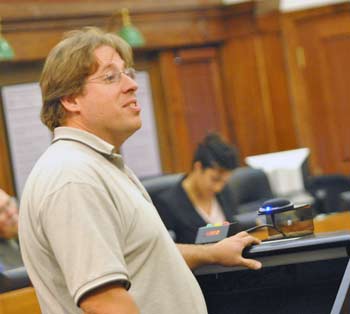
Ken Schrader, a PC technician with Washtenaw County, explained to the county commissioners that recently installed new microphones are more sensitive than the older ones. He jokingly warned them that they should be careful what they say now, because “you can’t take anything back.” Later in the meeting, the county’s information technology department was presented with an award from the Center for Digital Government.
The current rate is expected to bring in about $683,095 in 2013, and is allocated to a variety of organizations, including the economic development agency Ann Arbor SPARK ($200,000) and its Ypsilanti office SPARK East ($50,000). Smith and county administrator Verna McDaniel serve on SPARK’s executive committee.
Smith, a Democrat from Ann Arbor, suggested that by raising the rate to 0.06 mills, property owners would see only a slight increase in their annual taxes. For the average taxpayer, he estimated it would increase from $4.25 to $5.10 per year, while the amount raised countywide would increase about 20% to $838,577. He also proposed that the office of community and economic development – a joint county/city of Ann Arbor department led by Mary Jo Callan – should be given the authority to allocate the funding, rather than having the county board earmark amounts for specific organizations.
No formal amendment was made, but Smith circulated a three-page memo the following night outlining his proposal. [.pdf of Smith's Act 88 memo] It’s likely the board will take up this proposal as an amendment before a final vote at its Sept. 19 meeting. Initial approval was given on Sept. 5 for the current rate of 0.05 mills on a 7-to-3 vote, with dissent from Alicia Ping, Wes Prater, and Dan Smith. Ronnie Peterson was absent.
Another pre-Headlee tax – for support of indigent veterans – also got initial approval from the board, at a slightly increased rate. The initial approval increases that tax from 0.025 mills to 0.0286 mills. Staff of the county’s department of veterans affairs say the increase is needed because of rising claims and services from veterans due to a struggling economy, an anticipated increase in the number of returning soldiers, and a drop in property values. The millage is expected to raise $390,340 in revenues during 2013.
In other action related to tax revenue, commissioners gave initial approval to an ordinance governing the county’s natural areas preservation program. The change would remove the current restriction that only 7% of millage funds can be used for management or stewardship. The intent is to provide more flexibility in managing the funds, allowing the county to build a reserve for long-term stewardship. It’s viewed as an important goal, in the event that the NAPP millage is eliminated in the future. Yousef Rabhi, a Democrat who represents District 11 in Ann Arbor, proposed an amendment that would set a minimum of 25% to be spent on stewardship. The amendment failed on a 1-9 vote.
In an item viewed largely as a formality, county commissioners “ratified” the articles of incorporation for a new countywide transit authority. The document had been slightly revised from what the board had previously approved on Aug. 1, 2012 – on a 6-4 vote. This time, the vote was 6-3, with dissent from Alicia Ping, Wes Prater and Dan Smith. Rolland Sizemore Jr. and Ronnie Peterson were absent. Rob Turner, who had previously voted against the articles of incorporation, supported the item on Sept. 5.
Also approved was a resolution to support a policy change in the city of Ann Arbor related to affordable housing. The item was added to the Sept. 5 agenda during the meeting by Democrat Leah Gunn of Ann Arbor, and was not discussed by commissioners at the meeting. The resolution “encourages the Ann Arbor City Council to direct proceeds from the sale of the city-owned surface parking lots in the downtown to the city’s Housing Trust Fund, to be used to support sustainable, affordable housing.” [Earlier in the day, the Ann Arbor Downtown Development Authority board had passed a similar resolution of support. Gunn is chair of the DDA.] Dan Smith abstained from the vote. The following night, at a board working session, Alicia Ping announced that she had intended to vote against it, but had cited the wrong agenda number in casting her no vote.
Other action at the Sept. 5 meeting included initial approval of the county’s public health budget, which projects a 3.5 net increase in jobs. Voting against the budget were Alicia Ping and Dan Smith, who cautioned against adding new jobs as the county faces a deficit in 2013. A final vote is expected at the board’s Sept. 19 meeting.
Seth Best, a former resident of Camp Take Notice, addressed the board during public commentary about the need to tackle the root causes of homelessness. The homeless encampment had been evicted this summer from its most recent site in Scio Township.
And highlighting a letter that the county had recently received, commissioner Felicia Brabec raised concerns about the intent of Paxton Resources LLC to drill an exploratory oil and gas well in Saline Township. The board will likely revisit the issue of hydraulic fracturing, or “fracking,” at a future working session. Yousef Rabhi, who chairs those meetings, suggested wrapping it into a session he plans regarding the Pall/Gelman Sciences 1,4 dioxane plume. He sees a tie-in to the issue of industrial environmental contamination. [Full Story]
